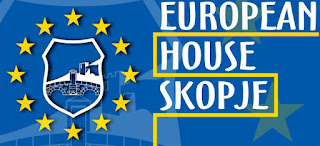Further efforts are needed to tackle climate change, the UN has warned in a fresh report, with greenhouse gas emissions in many EU states rising instead of decreasing.The Bonn-based United Nations Climate Change secretariat in a report released on Thursday (17 November) warned that the western world is losing its grip on the climate change problem. UN researchers found that overall in the industrialised world, greenhouse gas emissions were down 5.9 percent in 2003 compared to the 1990 levels.But the UN report says a large part of the reductions were achieved in Central and Eastern Europe in the early 1990s, as heavily-polluting industry stemming from the communist era were shut down as these countries restructured their economies.Richard Kinley, acting head of the UN climate change body, said: "What we see is that the emissions from developed countries as a group have been stable in recent years and not decreased as they did in the early 1990s. Moreover, greenhouse gas projections indicate the possibility of emission growth by 2010.""It means that ensuring sustained and deeper emission reductions remains a challenge for developed countries," he added.The EU as a bloc achieved a reduction of 1.4 percent in emissions from 1990 to 2003, still far away from the minus 8 percent target in 2012 that the Europeans have set themselves in the framework of the international Kyoto protocol.Former communist new member states witnessed sizable reductions as dirty plants closed, with the largest cuts reported in Latvia (58%) and Lithuania (66%). However, most "old" member states have seen emissions increasing instead of decreasing. Eleven of the fifteen old member states have reported emissions going up instead of down since 1990, with huge increases seen in Spain (41.7%), Portugal (36.7%), Greece (25.8%), Ireland (25.6%), Finland (21.5%) and Austria (16.5%).Only Germany (-18.2%), France (-1.9%), the UK (-13%), Luxembourg (-16%) and Sweden (-2.3%) managed to cut emissions.Under a "burden sharing agreement" facilitated by an emission rights trading scheme, the EU has set targets for each member state in order for the bloc as a whole to reach the Kyoto targets.According to the agreement, some states like Portugal and Spain are allowed to increase their emissions, but not by the amounts the new UN report has recorded.
By Mark Beunderman
Search This Blog
Subscribe to:
Post Comments (Atom)
European House Skopje is an NGO in Macedonia that promotes European values, democracy, human rights, and regional cooperation. Its...

-
Small Business Ideas You Can Run From Home If you have a desire to start a home-based business, you’re part of a growing trend. As a matter ...
-
Decentralising Structural Funds' management to the regional level Decentralised programming = Decentralised implementation? Or, Why (f...
-
• Chapter 1: Doing Business In Macedonia • Chapter 2: Seling Products and Services • Chapter 3: Leading Sectors for Export and Investment • ...
No comments:
Post a Comment